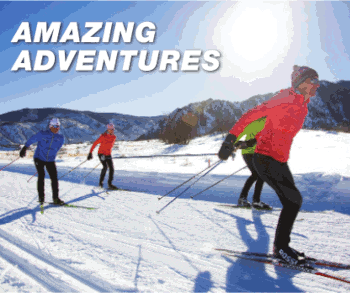June 7, 2008 – The 46th International Ski Congress in Cape Town (RSA) has now concluded. The FIS Council made several important decisions during its meetings in the course of the Congress week. For a summary of the Council’s decisions, please click here.
The election of the members of the FIS Council saw voting among 20 candidates for the 16 positions; the new Council during the upcoming two-year period 2008-2010 will include the following individuals (in alphabetical order): Jaakko Holkeri (FIN),Yoshiro Ito (JPN), Milan Jirasek (CZE), Janez Kocijancic (SLO), Sung-Won Lee (KOR), Bill Marolt (USA), Alain Methiaz (FRA, new), Giovanni Morzenti (ITA, new), Eduardo Roldan (SPA), Pablo Rosenkjer (ARG), Sverre Seeberg (NOR), Patrick Smith (CAN), Carl Eric Stålberg (SWE), Leonid Tyagachev (RUS), Fritz Wagnerberger (GER), and Werner Woerndle (AUT, new).
Exciting times in Ski Jumping and Nordic Combined
Concerning Ski Jumping and Nordic Combined, the Congress week in Cape Town brought about a few changes, notably the revision of the organization of the Nordic Combined discipline.
The focus of the changes will be on making Nordic Combined more spectacular and media friendly, and more easily understandable. To lead the revision process, the FIS Council appointed Walter Hofer as head of Nordic Combined, as well as of Ski Jumping.
As a first step, there will be a test phase of the proposed competition format for Nordic Combined comprised of one jump followed by a 10 km cross-country race. The test events will be held in Hinterzarten (GER) on 26th July, in Oberstdorf (GER) on 29th July and in Einsiedeln (SUI) on 1st August. After a thorough analysis by experts and the National Ski Associations after this series, a final decision about the competition format for the next World Cup season will be taken at the FIS Autumn meetings of the Technical Committees and the FIS Council.
Additional changes that have already been confirmed include the level below the FIS World Cup becoming Continental Cup instead of World Cup B. These events will be organized in conjunction with the men’s and ladies’ Ski Jumping Continental Cup series wherever possible. This will enable sharing of infrastructure and create organizational efficiencies.
The only change to the program for the FIS Nordic World Ski Championships 2009 in Liberec will be the inclusion of the 10 km distance for the Cross-Country Skiing in the Nordic Combined competition.
Walter Hofer commented: “This reorganization is a unique opportunity for Nordic Combined. The discipline has great potential which we can exploit by simplifying the rules and competition formats. By staging the Nordic Combined World Cup events together with Ski Jumping wherever possible we also have the opportunity to realize many synergies for the organizers, the spectators and the media. In a few years’ time, we hope to have increased the popularity of both disciplines significantly.â€
For Ski Jumping, the Cape Town Congress Week delivered the confirmation of the introduction of a small crystal globe for a separate Ski Flying ranking at the end of the World Cup season. A total of seven individual Ski Flying competitions are planned next season.
Another novelty on the Ski Jumping World Cup calendar is the so-called FIS Team Tour in Germany. This series of five events at three venues (Willingen, Klingenthal and Oberstdorf) includes three individual competitions (including two Ski Flying events) and two team events with a special Team ranking denoted by an additional •100’000. Overall, next season’s calendar includes six team competitions in addition to the one held as part of the 2009 FIS Nordic World Ski Championships in Liberec (CZE).
Further changes to Ski Jumping, as approved by the FIS Council, included revisions to the standards for jumping hill construction, notably for the preparation of the in-run, some adaptations to the rules for ski jumping suits as well as for the reimbursement of team expenses.
Hofer concluded: “The increase in the number of team competitions next season as well as the introduction of the FIS Team Tour is in reaction to public interest and several requests by the teams and organizers. We look forward to the fans’ response.â€
What’s new in Cross-Country?
During the days in Cape Town (RSA), the members of the FIS Cross-Country Committee and its various Sub-Committees were working hard for the development of the discipline. Several new rules and adaptations of the regulations were prepared to make the sport more attractive, fair and more easily understandable. Here the most important changes:
While in the last several years the distance and sprint races were counting to the overall World Cup based on a 2:1 ratio, from next season on, every race, whether it is a distance race or a sprint race will count to the overall World Cup ranking along with the total rankings of the Tour de Ski and the World Cup Final; the team sprint and relay competitions will count, as before, only to the Nations Cup.
In the future, the athletes will start according to their FIS points and the red group according to their World Cup points. This means that the so-called national group will not be placed in the front, but that they, too, will start according to their FIS points.
A refinement to the Team Sprint was also approved: the team sprint will in the future consist of two qualification heats, a break of 45 min and after that a final heat. With this break, fairness for the athletes is guaranteed and all will have sufficient time to recover. For TV, FIS can provide an exact starting time of the final, which will help to have more live transmissions.
To make the mass start races more attractive, the FIS Council allowed a trial with intermediate sprints where the top three athletes can win World Cup points (15 -10 -5) in competitions over 30 km (ladies) and 50 km (men).
For a complete summary of the rule changes including those for the FIS Tour de Ski and the World Cup Final see here and for the calendar here..
IOC selects the 2016 Candidate Cities
The International Olympic Committee (IOC) Executive Board selected the Candidate Cities for the 2016 Olympic Summer Games in its meeting in Athens on Wednesday. From amongst the seven Applicant Cities – Chicago (USA), Prague (CZE), Tokyo (JPN), Rio de Janeiro (BRA), Baku (Azerbaijan), Doha (Qatar) and Madrid (SPA) – four were chosen to move onto the next phase, the so-called candidature procedure phase. The selected Candidate Cities were announced as Chicago (USA), Tokyo (JPN), Rio de Janeiro (BRA), and Madrid (SPA).
The selected Candidate Cities are required to submit their Candidature File with an in-depth description of their Olympic project by 12th February 2009. They can attend the 2008 Olympic Summer Games as observers and each must also prepare for the visit of the IOC Evaluation Commission. The Evaluation Commission will make a detailed technical assessment of each candidature and publish a report one month before the election of the host city for the IOC members to review. The election of the host city of the 2016 Games will take place on 2nd October 2009 during the 121st IOC Session in Copenhagen (DEN).
For the 2018 Olympic Winter Games, the application process will begin with the official opening of the bid process during the summer 2009, with the deadline of submitting the Applicant Cities in mid-October 2009. The official Candidate Cities will be selected in the summer of 2010.
Athens hosts 6th SportAccord
More than 1500 delegates from 60 countries have convened in Athens (GRE) this week for the sixth edition of SportAccord, the convention for international sports federations. As has become customary, this year’s sold-out event also included the General Assemblies of the various associations for the international federations (GAIFS, AIOWF, ASOIF & ARIFS) that were held earlier this week. Moreover, the IOC Executive Board is meeting at Sport Accord from 4th to 6th June.
FIS is represented in Athens by President Gian Franco Kasper, who is a member of the board of GAIFS (General Assemblies of the General Association of International Sports Federations), along with Sarah Lewis, Secretary General, who is on the SportAccord Steering Committee, and Christian Knauth, FIS Marketing and Communications Director.
This year’s conference program is focused on trends and technology in the sports business and on how to stay relevant to the younger generation. The keynote speakers included Patricia Walker from YouTube/ Google and Laurent-Eric Le Lay, Chairman and CEo of Eurosport, among others.
Aksel Lund Svindal (NOR), 2007 FIS Alpine World Cup men’s overall champion, participated in a new athletes session also featuring Olympic triple jump gold medalist Jonathan Edwards and Morocco’s sports minister and IOC member Nawal El Moutawakel.
Other premieres at this year’s SportAccord include the City Forum that offered insights on developing long-term hosting strategies for major events along with SportAccord TV. Exclusive interviews with sports industry leaders can be viewed on the dedicated channel available at www.sportaccord.com. All the major presentations will also be available on an on-demand basis. The video service has been developed through a partnership with WCSN – www.wcsn.com).
Now in its sixth year, SportAccord has grown into a key event for the international sports movement. The attendees include sports movement leaders, sponsors, bid and host cities, broadcasters, rights holders and other sports specialists. Past SportAccords have been held in Lausanne, Madrid, Berlin, Seoul and Beijing. The 2009 edition will be staged in the Americas for the first time, taking place in Denver (USA) in March 2009.
Lahti, Willingen and Klingenthal the media’s Nordic favourites
Every season, Forum Nordicum, an association of Nordic sports journalists, makes an assessment at each Nordic and Biathlon World Cup venue and awards the honor of the most Å’media-friendly’ World Cup host per discipline. This year’s winners in the FIS Nordic disciplines are the two German World Cup venues Willingen – for Ski Jumping – and Klingenthal ˆ for Nordic Combined – along with the Finnish World Cup host city of Lahti for Cross-Country.
The top three in the Nordic categories for the 2007/2008 season were:
– Cross-Country: 1st Lahti (FIN), 2nd Canmore (CAN), 3rd Falun (SWE)
– Ski Jumping: 1st Willingen (GER), 2nd Val di Fiemme (ITA), 3rd Engelberg (SUI) & Lahti (FIN)
– Nordic Combined: 1st Klingenthal (GER), 2nd Val di Fiemme (ITA), 3rd Lahti (FIN)
“First of all, I would like to congratulate the winners on behalf of Forum Nordicum for their excellent work for the media. We can see that this evaluation helps to develop our working conditions,” noted Uwe Jentzsch, Chairman of Forum Nordicum, and added: “The award for the most media-friendly venue should be an incentive and help the hosts continue to improve the working conditions for on-site media in the long-term.”
For more information on Forum Nordicum, click here.
Top News Stories
FIS Congress Wrap Up – Ski Jumping and Nordic Combined Changes
What's New In XC - Nordic Favourites
release by FISLeave a Reply
You must be logged in to post a comment.






![National camp action [P]...](https://null-skitrax.com/wp-content/uploads/2019/08/Duluth-4-2019-08-08-at-10.46.51-AM-300x246.png)
![Matt Liebsch on the CXC Elite Team [P] CXC...](https://null-skitrax.com/wp-content/uploads/2019/08/Matt-Liebsch-CXC.2-525x700.4-300x267.jpg)
![Dan LaBlanc [P]...](https://null-skitrax.com/wp-content/uploads/2019/08/Dan-LaBlanc-img_1855.3.jpg)
